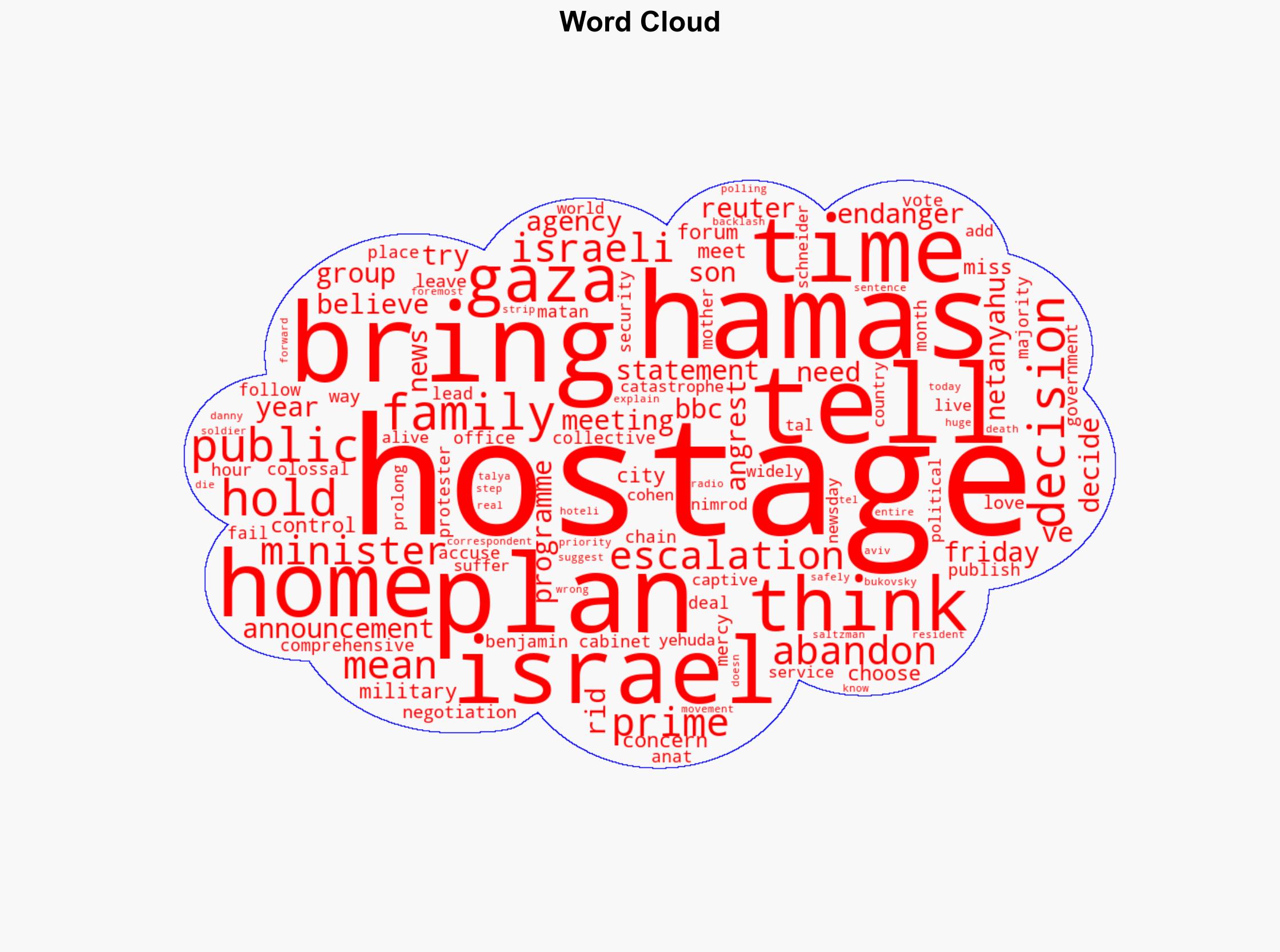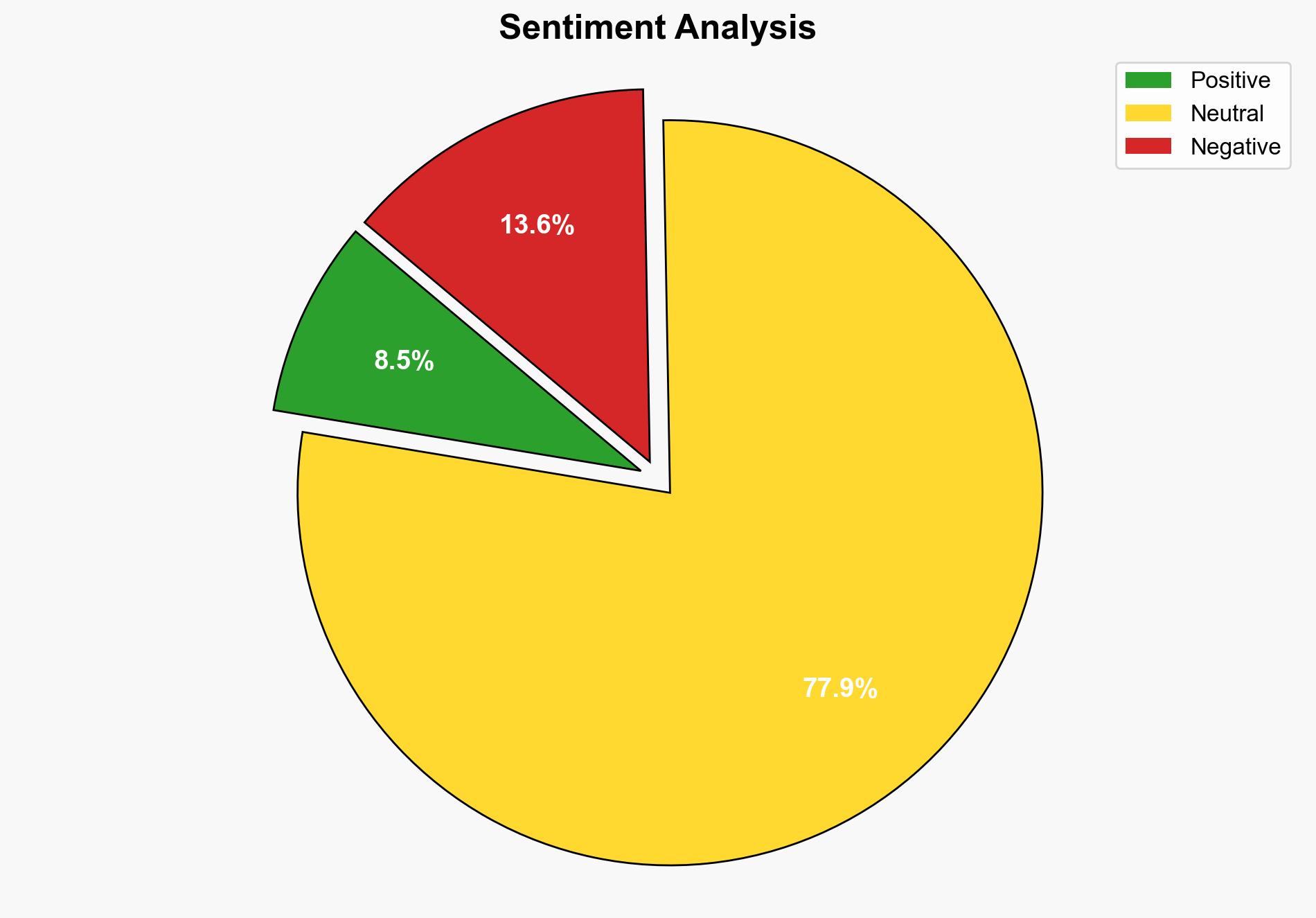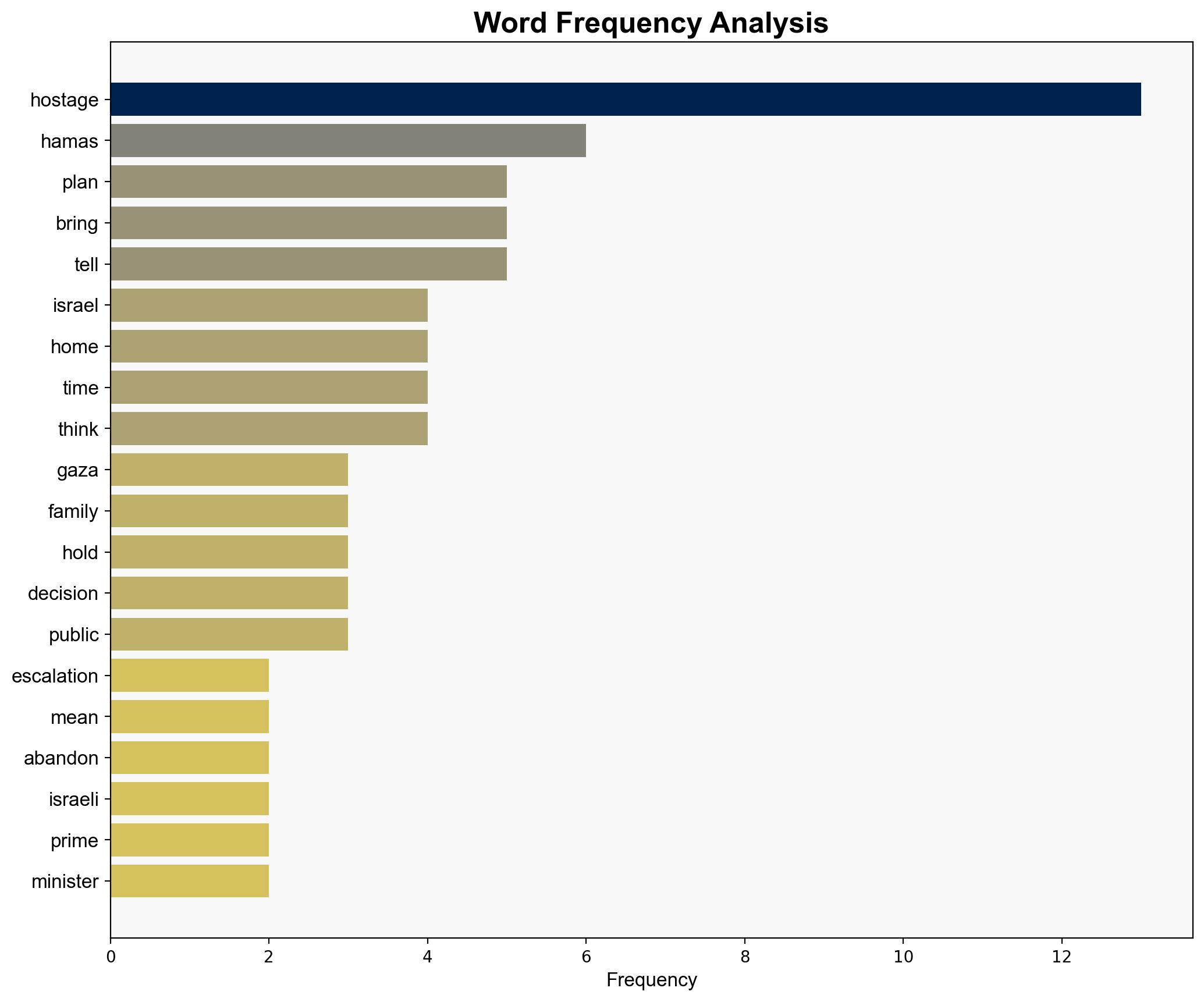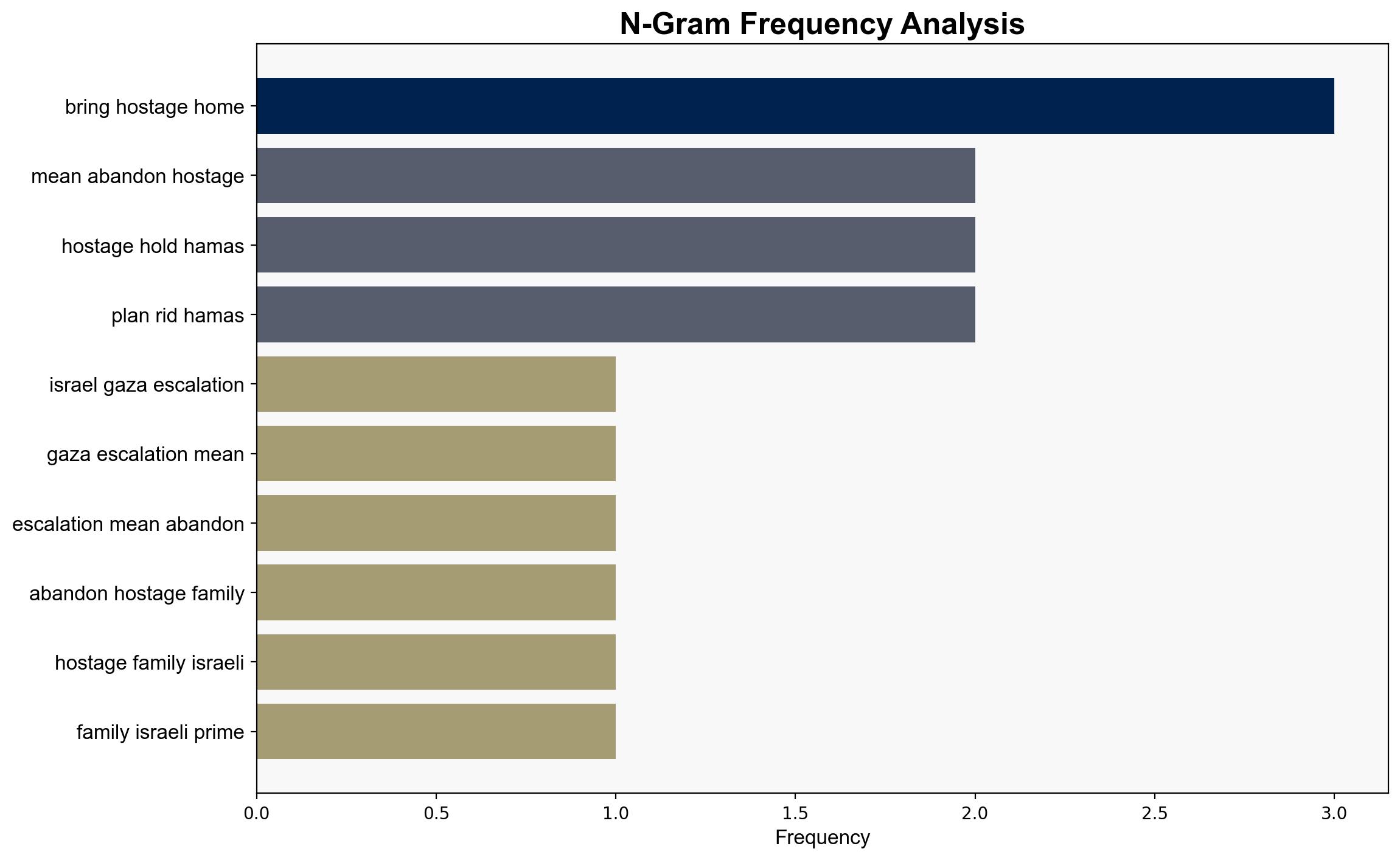Taking control means abandoning hostages families say – BBC News
Published on: 2025-08-08
Intelligence Report: Taking control means abandoning hostages families say – BBC News
1. BLUF (Bottom Line Up Front)
The strategic judgment indicates a moderate confidence level that the Israeli government’s decision to escalate military control over Gaza may prioritize long-term strategic objectives over immediate hostage recovery. The most supported hypothesis suggests that the government perceives military action as a necessary step to weaken Hamas, despite public backlash. Recommended action includes diplomatic engagement to mitigate public dissent and explore negotiation channels for hostage recovery.
2. Competing Hypotheses
Hypothesis 1: The Israeli government’s decision to take control of Gaza is primarily driven by a strategic objective to weaken Hamas, viewing military escalation as a more effective long-term solution than negotiation for hostage release.
Hypothesis 2: The decision is a tactical move to pressure Hamas into negotiations by demonstrating military resolve, with the ultimate goal of securing hostage release through a show of force.
Using the Analysis of Competing Hypotheses (ACH) 2.0, Hypothesis 1 is better supported by the government’s historical stance on Hamas and the strategic emphasis on security over immediate humanitarian concerns. Public backlash and statements from families suggest a lack of focus on negotiation, aligning more with Hypothesis 1.
3. Key Assumptions and Red Flags
– Assumption: The Israeli government believes military action will weaken Hamas more effectively than negotiation.
– Red Flag: Public backlash and emotional appeals from hostage families indicate potential underestimation of domestic dissent.
– Blind Spot: Lack of detailed information on alternative negotiation strategies or international diplomatic efforts.
4. Implications and Strategic Risks
The decision to escalate militarily could lead to increased regional instability and potential international condemnation. There is a risk of further entrenching hostilities, complicating future negotiations. The psychological impact on Israeli citizens and the potential for increased recruitment by Hamas due to perceived aggression are significant concerns. Economically, prolonged conflict could strain resources and affect regional markets.
5. Recommendations and Outlook
- Engage in diplomatic efforts with international allies to mediate and explore alternative negotiation channels.
- Communicate transparently with the public to manage expectations and reduce backlash.
- Scenario Projections:
- Best Case: Successful weakening of Hamas with minimal casualties and eventual hostage release through diplomatic channels.
- Worst Case: Escalation leads to prolonged conflict, increased hostilities, and further hostage casualties.
- Most Likely: Short-term military gains with ongoing public dissent and limited progress on hostage negotiations.
6. Key Individuals and Entities
– Benjamin Netanyahu
– Anat Angrest
– Yehuda Cohen
– Tal Schneider
– Danny Bukovsky
– Talya Saltzman
7. Thematic Tags
national security threats, counter-terrorism, regional focus





